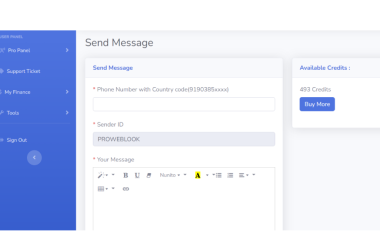Introduction.
Understanding Whois Lookup Tool.
Whois, a portmanteau of “who is,” is a protocol used to query databases containing information about registered domain names. Initially developed in the early days of the internet, Whois aimed to promote transparency and accountability in domain registration by providing accessible information about registrants. Over time, it evolved into a fundamental tool for investigating domain ownership and related details.
How Does Whois Lookup Work?
At its core, Whois lookup operates by querying a centralized database that stores information about domain registrations. When a domain is registered, the registrar collects details about the registrant, including their name, contact information, registration and expiration dates, and more. This data is then stored in the Whois database, accessible to anyone who performs a Whois lookup using the domain name.
The Importance of Whois Lookup.
1. Domain Ownership Verification: Whois lookup is essential for verifying the ownership of a domain. It allows individuals, businesses, and organizations to confirm the legitimacy of a domain and its registrant.
2. Contact Information: Whois lookup provides valuable contact information for domain registrants, facilitating communication for various purposes, such as business inquiries, legal matters, or reporting abuse.
3. Domain Expiry Dates: By checking the registration and expiration dates of a domain, individuals can assess its status and plan accordingly. This information is valuable for businesses seeking to acquire expiring domains or for domain investors looking for investment opportunities.
4. Investigative Purposes: Law enforcement agencies, cybersecurity professionals, and intellectual property rights holders often use Whois lookup for investigative purposes. It helps them uncover the identities behind suspicious domains, track down cybercriminals, and combat online fraud, phishing attacks, and intellectual property infringement.
Limitations and Privacy Concerns.
Despite its utility, Whois lookup faces several limitations and privacy concerns:
1. Privacy Protection Services: Many registrars offer privacy protection services that allow registrants to conceal their personal information in the Whois database. Instead of displaying the registrant’s details, these services substitute generic contact information provided by the registrar, limiting the transparency of domain ownership.
2. GDPR Compliance: The implementation of the General Data Protection Regulation (GDPR) by the European Union has further complicated Whois lookup. GDPR mandates the protection of personal data, including that of domain registrants. As a result, registrars are required to redact personal information from the Whois database for domains owned by EU residents, posing challenges for investigators and researchers.
3. Accuracy and Reliability: The accuracy and reliability of Whois data can vary depending on various factors, such as the diligence of registrars in updating information, the timeliness of database updates, and the presence of fraudulent or incomplete data.
Navigating Whois Lookup.
Performing a Whois lookup is relatively straightforward, requiring only the domain name of interest. Several online Whois lookup tools are available, allowing users to query the Whois database and retrieve information about domain registrations.
Advanced Uses of Whois Lookup Tool.
Beyond basic domain ownership verification, Whois lookup can be used for various advanced purposes, which includes the following:
1. Cybersecurity Investigations: Cybersecurity professionals use Whois lookup to investigate cyber threats, track down malicious domains, and identify the perpetrators behind cyberattacks. By analyzing Whois data, they can uncover patterns, relationships, and indicators of compromise.
2. Brand Protection: Companies employ Whois lookup to monitor domain registrations related to their brand names and trademarks. By monitoring new registrations and detecting potential infringements, they can take proactive measures to protect their intellectual property rights.
3. Market Research: Domain investors and entrepreneurs utilize Whois lookup for market research purposes. By analyzing domain registration trends, they can identify emerging markets, niche opportunities, and valuable domain assets for acquisition or development.
4. Legal Proceedings: Whois lookup plays a crucial role in legal proceedings involving domain disputes, intellectual property infringement, and cybercrimes. Lawyers use Whois data as evidence to support their arguments, establish ownership rights, and pursue legal remedies.
Conclusion.
In conclusion, Whois lookup serves as a cornerstone of transparency and accountability in the domain registration process. Kindly check our website Proweblook for more Web API tools. More resources can be found on our Github page. Social Channels are Twitter, Facebook & Youtube.








